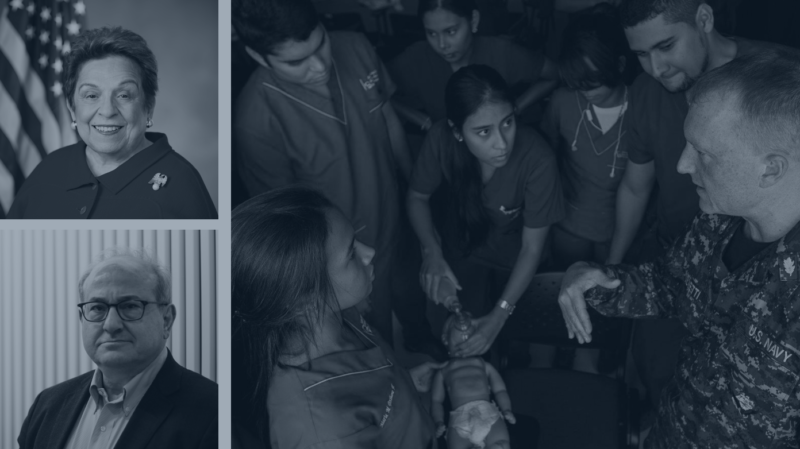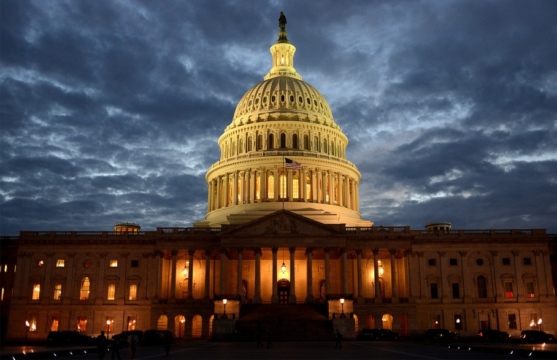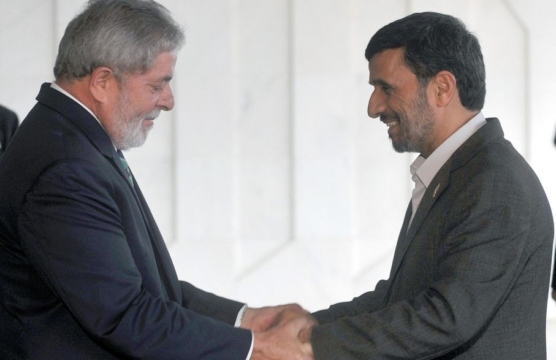What Do the US Election Results Mean for Latin America?
What do the election results mean for hemispheric policy and foreign relations?
On March 26, the Inter-American Dialogue's Congressional Program hosted a conference call titled "US Regional Cooperation on Covid-19" with Congresswoman Donna Shalala, US representative for Florida’s 27th congressional district and former secretary of health and human services under President Bill Clinton. She joined the Dialogue as a member in 2001. This conversation was moderated by Michael Shifter, president of the Inter-American Dialogue.
Shifter began the discussion by recalling the different approaches that governments are pursuing to address the well-being of its citizens. In the United States, the Families First Coronavirus Act was enacted into law, which provides individuals with free testing, enhanced unemployment insurance, paid employee leave, among other services. The House of Representatives will soon vote on the $2 trillion bipartisan emergency relief package recently negotiated by Senate Leaders and the Trump Administration. As the number of cases continues to increase throughout the Americas, Shifter noted the importance of the US role in fostering cooperation in the region and developing assistance packages.
Shalala affirmed the urgency of the crisis in her opening remarks, noting that how the virus has spread throughout the United States and reached virtually all of Latin America. She stressed the dire situation in the region, especially in Venezuela. The House is deeply concerned about the capacity of the Maduro regime to address the health needs of the Venezuelan people as well as that of the other countries, especially those who have taken a massive influx of refugees. Shalala shared a growing concern for countries in the Americas, due to the constrained capacity of their healthcare systems and the insufficient amount of personal protective equipment (PPE) and medical supplies. Teleworking is also difficult to mandate, given the nature of jobs in the region and the limited access to the internet in homes. The congresswoman stressed the urgency of cooperation between the business community, the United States and all the governments in the world related to Latin America to alleviate the crisis.
Shalala noted the United States has a robust history of public health assistance abroad through aid and field expertise, including full-time Centers of Disease and Prevention (CDC) staff working in the Americas jointly with the Pan American Health Organization (PAHO). The first coronavirus bill passed in Congress gave the CDC and USAID emergency funds for its global operations and international health programs, and USAID released almost $62 million from its emergency reserve fund. However, she noted it is not enough to slow the spread. There is an interest in the House to continue US global leadership role in assistance packages. In terms of PAHO, the CDC is prepared to do everything they can, taking into account its financial limitations. In Congress, she stated there is a bipartisan group of members in the House who would be interested in presenting legislation regarding cooperation in the Americas. In the meantime, the CDC has continued its working relationship with Latin America, sharing clinical research to identify treatments, best practices, and leadership questions.
The call ended with a Q&A session with the audience. Shalala highlighted the gaps this pandemic has exposed in the US public health system, emphasizing the need to classify public health as a national security issue and increase investment in major scientific agencies and departments at the federal, state, and local levels. Another major point of concern is in the prison and immigrant detention centers throughout the country, where social distancing is impossible to practice. When asked about the strict measures taken by Latin American countries to combat the virus, she agreed that the measures would help combat the virus if they are properly enforced. Public leadership plays a crucial role in convincing people early on to take quarantines or lockdowns seriously. Shalala also addressed questions on the consistency of humanitarian aid to Venezuela, the barriers of producing a successful vaccine in the United States, and the possibility of US leadership regarding regional coordination in Central America.
[audio mp3="https://www.thedialogue.org/wp-content/uploads/2020/03/Donna-Shalala-Conference-Call.mp3"][/audio]
Coronavirus: Why former US health secretary is concerned about Latin America (March 26, 2020 - BNamericas)
Coronavirus: La preocupación por Latinoamérica de una exsecretaria de Salud de EE.UU. (March 26, 2020 - BNamericas)
What do the election results mean for hemispheric policy and foreign relations?
A bill pending in the US Congress would require money transmitters to verify their customers’ immigration status. Is this measure good policy?
Iran’s influence in the region, even in the handful of countries where it has been most active, has only declined in recent years.
 Main Photo: US Army photo by Private First Class Liem Huynh/Released
Main Photo: US Army photo by Private First Class Liem Huynh/Released

